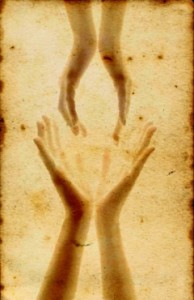 In just a few days, I’ll be welcoming a group of approximately two dozen individuals to the first evening of a mediation training that I’m teaching during March. It’s a privilege to guide them as they begin to master the basics of mediation practice. There’s something about teaching and training that helps keep concepts and approaches fresh for me as a practitioner. I get to be a student again myself, seeing mediation practice through beginner’s eyes.
In just a few days, I’ll be welcoming a group of approximately two dozen individuals to the first evening of a mediation training that I’m teaching during March. It’s a privilege to guide them as they begin to master the basics of mediation practice. There’s something about teaching and training that helps keep concepts and approaches fresh for me as a practitioner. I get to be a student again myself, seeing mediation practice through beginner’s eyes.
One of the challenges I find that new mediators face is how to show empathy without sacrificing neutrality. They struggle to find their balance. We use an advanced case toward the end of the mediation training as a way to explore the role of emotions at the table. This role play involves a family business dispute, based on a true story; fighting over the fate of a company founded by two brothers, one of them recently deceased, are the surviving brother and his brother’s widow, each grief-stricken at the loss of someone important to them both. All too often, beginning mediators, faced with these dynamics, miss the opportunity to acknowledge the shared loss. Disregarding the parties’ tears or emotional states, some new mediators press on, urging the parties toward untimely settlement.
I have no doubt for a moment that these new mediators, faced with genuine grief instead of the grief feigned by fellow trainees acting a role, would respond with compassion, and find the right words to say. Constrained by their misconceptions of the boundaries of the mediator’s role, they struggle. They fear that showing empathy or understanding will shatter their impartiality as neutrals. And so they hide their humanity behind their professional role.
I recall one case that brought home to me how important a mediator’s humanity can be to tip the dynamics in a more hopeful direction. A colleague of mine asked me to co-mediate a sensitive case with him, thinking that the parties might benefit from the teamwork of two mediators. Two parents, long divorced, had an only child they co-parented. These parents, who had worked together so amicably after their divorce, now found themselves at odds over an important and difficult decision. Their child was profoundly disabled, struggling with daunting physical and mental challenges, and had undergone numerous difficult and painful medical procedures. Their doctors were recommending one last procedure; if successful, it could lead to improved quality of life, but the procedure was complex and risky. What to do? During the mediation, each parent spoke movingly about what this special child had been through. I could hear the sadness in their voices but also pride, and love, too, as they spoke admiringly of their child’s heroism and grit in the face of Everest-sized challenges. They each began to cry as they described the risks of the recommended surgery, and their fear and uncertainty for the future.
You would have had to have been made of stone to have sat in that room in the presence of so much raw emotion and not be moved yourself. I looked across the table at my colleague and saw that his eyes were filled with tears. I could feel the tears fill my eyes, too. The two parents fell silent; they looked from one mediator to another. I could see a look of realization – or perhaps recognition – in their faces; they saw from our faces that we understood, that we felt for them both. Something shifted in the room in that moment. One and then the other reached out and clasped our hands, smiling at us as they blinked back their own tears. The words began to flow again. From discord to union, the two parents worked out a plan for meeting with the doctors, gathering information, and identifying criteria for making the right decision. They had found a way through.
And so I remind the new mediators that I work with that being a mediator doesn’t mean you have to check your humanity at the door. Being yourself in fact may be the best way you can honor your clients.
________________________
To make sure you do not miss out on regular updates from the Kluwer Mediation Blog, please subscribe here.



sir, i am very much thankful to you by reading your message regarding empathy. still i am doubt when and how to show empathy towards parties version during the process of mediation as I am dealing matters of court medation in india.